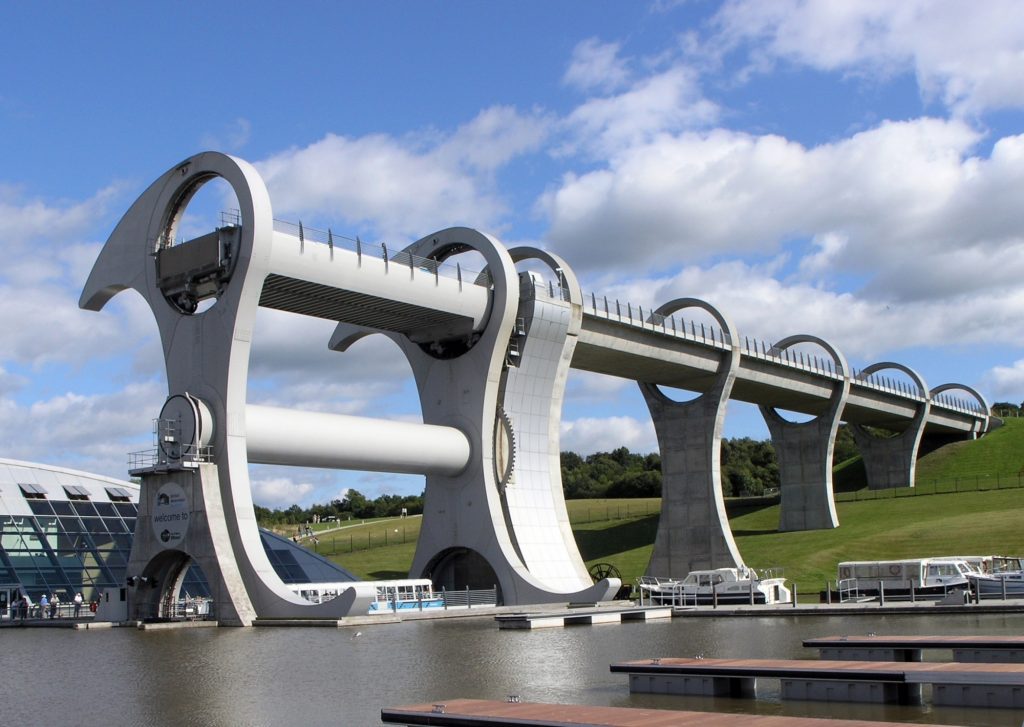Background and Rationale
Kazakhstan is now knocking on the door of being a developed country and has the potential to be so soon, based on the estimation of reserves in oil, gas, and minerals. Now civil engineers and chemical, electrical, and mechanical engineers are setting the ground and developing engineering to enhance the country. The development of the natural resources has been the basis for the economic growth of Kazakhstan, however the other side of this development, the environmental issues have been always segregated and forgotten for a long time. Now it is time for civil and environmental engineers to do their pivotal roles, i.e. the natural resources should be wisely and properly developed by the engineers to prevent their extinctions under a fair environmental protection regime.
We believe that the Civil and Environmental Engineering Department and its relevant disciplines are required to produce the essential engineering education for students and training programs for site professionals and to harbor and carry out significant research projects to solve serious impending environmental disasters such as climate change and global contaminant transport, threatening the longevity of the earth and human well-being.
Consequently, we believe that the Civil and Environmental Engineering Department plays critical and proper roles for the society of Kazakhstan by focusing on the expertise of the faculty members, developed ABET-based core courses, and relevant research projects.

Aims
The aims of the Program are:
1.Acquire a strong fundamental scientific and technological knowledge base with critical thinking skills necessary for life-long learning and to pursue a variety of civil and environmental engineering careers in industry, academic, and government within Kazakhstan or abroad;
2.Apply engineering skills incorporating the use of standards, computers, experiments, and realistic constraints to analyze, design, and solve problems associated with the civil and environmental engineering profession;
3.Understand the role as civil engineers, the moral obligations, ethical standards, and professional integrity of civil and environmental engineering practice and have an awareness of safety, legal, environmental, and social impact on the role of the engineering professional in a multicultural, global economy
4.Develop the foundation for leadership through the abilities to communicate technical and professional information effectively, as well as to work independently or as a member in a team.
Learning Outcomes of the Program
On successful completion of the BEng (Hons) in Department of Civil and Environmental Engineering students will be able to:
- An ability to identify, formulate, and solve complex engineering problems by applying principles of engineering, science, and mathematics;
- An ability to apply the engineering design process to produce solutions that meet specified needs with consideration for public health and safety, as well as global, cultural, social, environmental, economic, and other factors, as appropriate to the discipline;
- An ability to develop and conduct appropriate experimentation, analyze and interpret data, and use engineering judgment to draw conclusions;
- An ability to communicate effectively with a range of audiences;
- An ability to recognize ethical and professional responsibilities in engineering situations and make informed judgments, which must consider the impact of engineering solutions in global, economic, environmental, and societal contexts;
- An ability to recognize the ongoing need to acquire new knowledge, to choose appropriate learning strategies, and to apply this knowledge;
- An ability to function effectively as a member or leader of a team that establishes goals, plans tasks, meets deadlines, and creates a collaborative and inclusive environment.
CAPSTONE PROJECT
The Capstone Project is a 2-semester common course for all engineering programs which spans across the fall and spring semesters of the same academic year. The importance of the Capstone project is reflected in the total number of credits it carries, being 12 ECTS which are equivalent to two standard-sized courses.
One of the important features of the Capstone Project is “learning by doing”. It is intended to be a platform for the students to develop their intellectual and innovative abilities and to give them the opportunities to integrate and apply the knowledge and analytical skills gained in previous stages of study. It should also provide students with opportunities to develop their problem-solving skills and communication skills. The process from concept to final implementation and testing, through problem identification and the selection of appropriate solutions will be practiced by the students.
| Course Code | Course Title | ECTS | Comments | Category of Courses |
| A. Nazarbayev University Undergraduate Core Curriculum Requirements | ||||
| Communicate fluently in the English Language | ||||
| SHSS150 | Rhetoric and Composition | 6 | Compulsory | |
| SHSS210 | Technical Writing | 6 | Compulsory | |
| Demonstrate competence in the Kazakh Language | ||||
| Select 2 courses at appropriate level in Kazakh Language, Literature or Culture | 12 | Based on diagnostic test | Compulsory | |
| Describe and interpret major events in Kazakh and Kazakhstani history | ||||
| HST100 | History of Kazakhstan | 6 | Compulsory | |
| Demonstrate knowledge of the natural and social sciences | ||||
| ECON323 | Managerial Economics | 6 | Compulsory | |
| PHYS161 | Physics I for Scientists and Engineers | 8 | Compulsory | |
| Apply numerical and digital literacy skills | ||||
| MATH161 | Calculus I | 8 | Compulsory | |
| ENG101 | Programming for Engineers | 6 | Compulsory | |
| Apply skills in business, design and entrepreneurial thinking | ||||
| Fundamentals of Entrepreneurship and Management | 6 | Compulsory | ||
| Use research skills and methods to complete projects | ||||
| ENG100 | Introduction to Engineering | 6 | Compulsory | |
| Identify ethical and leadership issues and take appropriate leadership actions | ||||
| Select 1 among 3 SHSS offered courses on Ethics | 6 | Compulsory | ||
| Course Code | Course Title | ECTS | Comments | Category of Courses |
| B. Common/shared Courses | ||||
| ENG102 | Engineering Materials I | 6 | Compulsory | |
| PHYS162 | Physics II for Scientists and Engineers | 6 | Compulsory | |
| MATH162 | Calculus II | 8 | Compulsory | |
| ENG200 | Differential Equations and Linear Algebra | 6 | Compulsory | |
| ENG202 | Numerical Methods in Engineering | 6 | Compulsory | |
| ENG201 | Applied Statistics | 6 | Compulsory | |
| CEE201 | Environmental Chemistry | 6 | Compulsory | |
| ENG400 | Capstone project | 12 | Compulsory | |
| MAE 200 | Structural Mechanics I | |||
| MAE 300 | Fluid Mechanics I | |||
| Course Code | Course Title | ECTS | Comments | Category of Courses |
| C. Discipline-Specific Requirement | ||||
| CEE 200 | Structural Mechanics I | 6 | ||
| CEE 201 | Environmental Chemistry | 6 | ||
| CEE 204 | Civil Engineering CAD and Surveying | 6 | ||
| CEE 203 | Structural Analysis | 6 | ||
| CEE 202 | Environmental Engineering | 6 | ||
| CEE 300 | Structural Design - Concrete | 6 | ||
| CEE 302 | Geotechnical Engineering | 6 | ||
| CEE 304 | Fluid Mechanics I | 6 | ||
| CEE 306 | Civil Engineering Materials | 6 | ||
| CEE 301 | Structural Design – Steel | 6 | ||
| CEE 303 | Geotechnical Design | 6 | ||
| CEE 305 | Hydraulics and Hydrology | 6 | ||
| CEE 400 | Transportation Engineering | 6 | ||
| CEE 401 | Construction Technology and Management | 6 | ||
| D. Discipline-Specific Requirement (Specialization areas and electives) | ||||
| Structural Engineering | ||||
| CEE 450 | Behavior & Design of Structural System | Elective | ||
| CEE 451 | Prestressed Concrete Design | Elective | ||
| CEE 452 | Advanced Structural Mechanics | Elective | ||
| ENG 300 | Interdisciplinary Design Project | Elective | ||
| CEE 463 | Individual Research Project in CE 1 | Elective | ||
| CEE 464 | Individual Research Project in CE 2 | Elective | ||
| Course Code | Course Title | ECTS | Comments | Category of Courses |
| E. Discipline-Specific Requirement (Specialization areas and electives) | ||||
| Geotechnical Engineering | ||||
| CEE 453 | Applied Soil Mechanics | Elective | ||
| CEE 454 | Foundation Engineering | Elective | ||
| ENG 300 | Interdisciplinary Design Project | Elective | ||
| CEE 463 | Individual Research Project in CE 1 | Elective | ||
| CEE 464 | Individual Research Project in CE 2 | Elective | ||
| Environmental Engineering | ||||
| CEE 350 | Water & Wastewater Treatment Processes | Elective | ||
| CEE 455 | Solid and Hazardous Waste Management | Elective | ||
| CEE 456 | Membrane Separation Processes | Elective | ||
| CEE 457 | Air Quality Management | Elective | ||
| ENG 300 | Interdisciplinary Design Project | Elective | ||
| CEE 463 | Individual Research Project in CE 1 | Elective | ||
| CEE 464 | Individual Research Project in CE 2 | Elective | ||
| Construction Engineering and Management | ||||
| CEE 351 | Application of Geomatics in CE | Elective | ||
| CEE 458 | Modern IT in Construction | Elective | ||
| ENG 300 | Interdisciplinary Design Project | Elective | ||
| CEE 463 | Individual Research Project in CE 1 | Elective | ||
| CEE 464 | Individual Research Project in CE 2 | Elective | ||
| Elective | ||||
| Water Resources Engineering | ||||
| CEE 459 | Water Systems and Structures | Elective | ||
| CEE 460 | Water Supply and Distribution Management | Elective | ||
| ENG 300 | Interdisciplinary Design Project | Elective | ||
| CEE 463 | Individual Research Project in CE 1 | Elective | ||
| CEE 464 | Individual Research Project in CE 2 | Elective | ||
| Transportation Engineering | ||||
| CEE 352 | Structure & Properties of Concrete Materials | Elective | ||
| CEE 461 | Traffic Engineering and Management | Elective | ||
| CEE 462 | Pavement Design and Performance | Elective | ||
| ENG 300 | Interdisciplinary Design Project | Elective | ||
| CEE 463 | Individual Research Project in CE 1 | Elective | ||
| CEE 464 | Individual Research Project in CE 2 | Elective | ||




